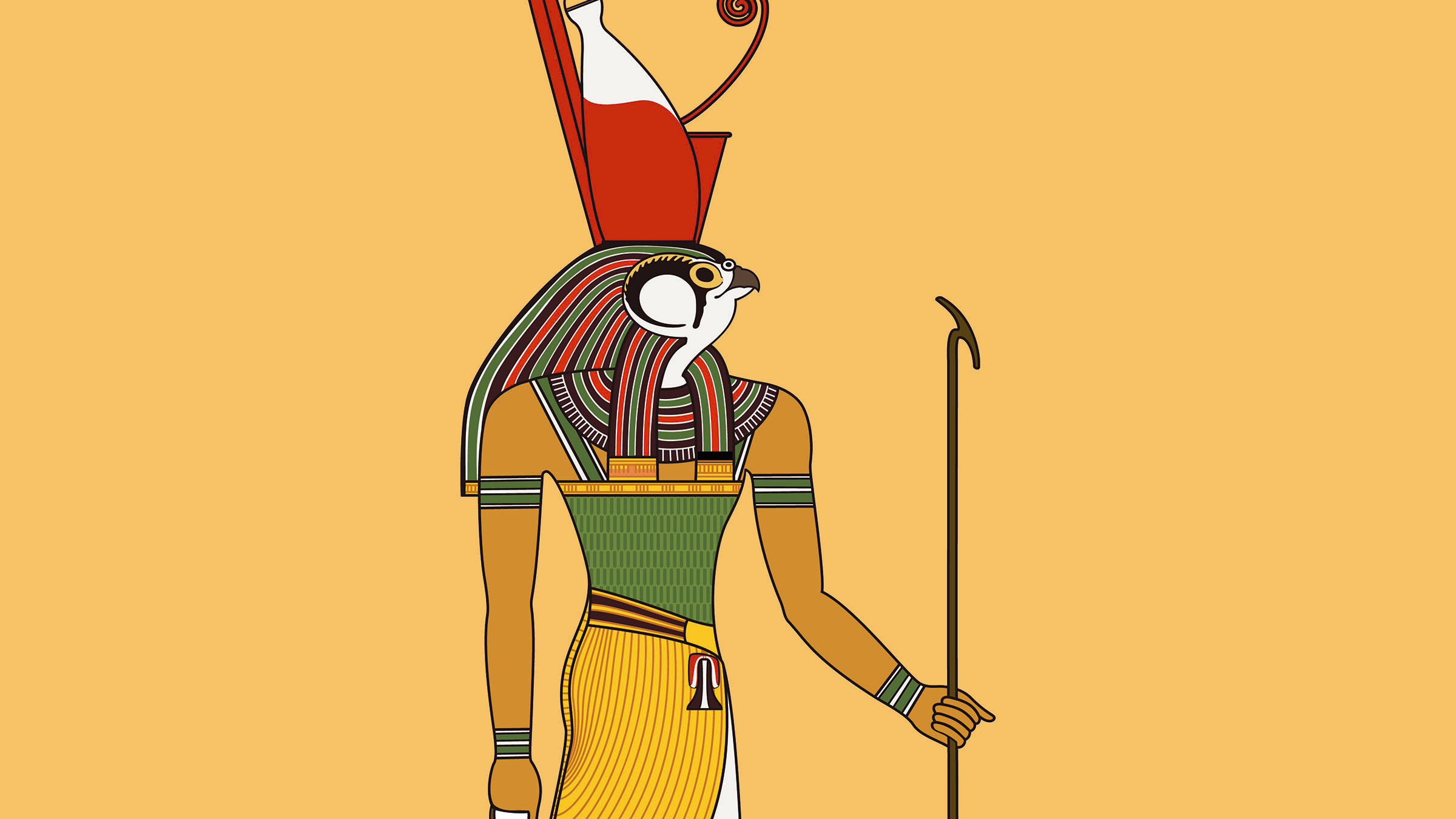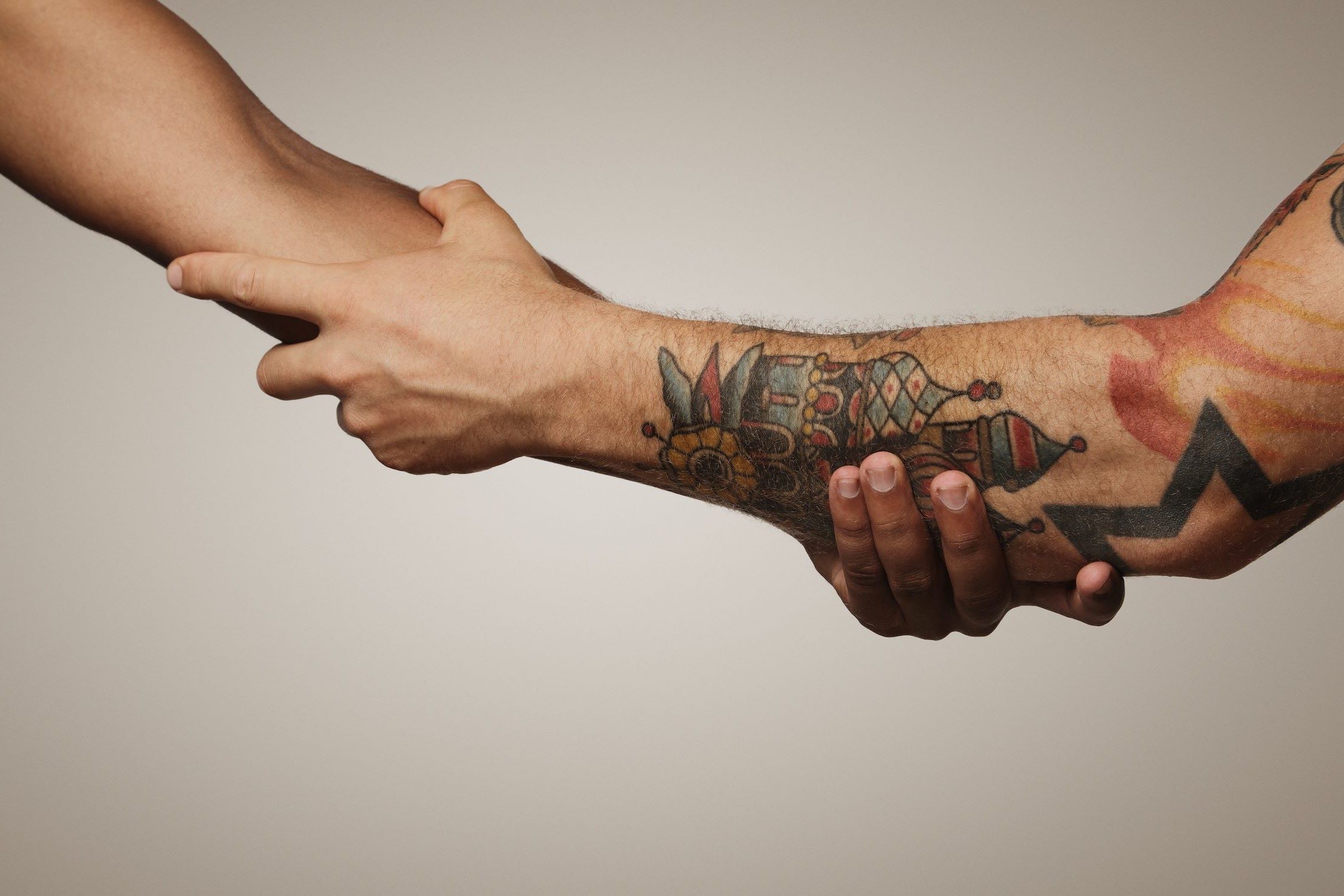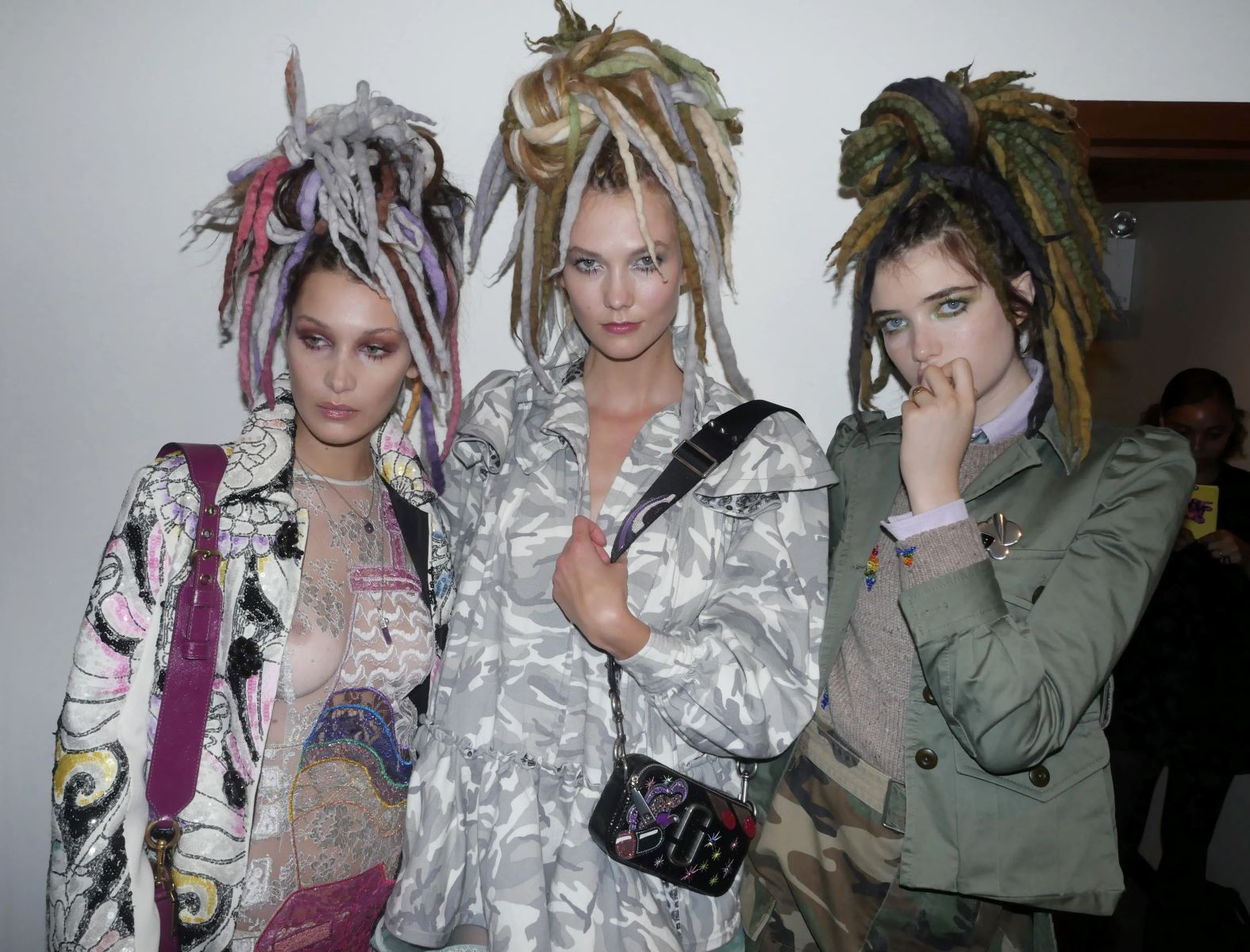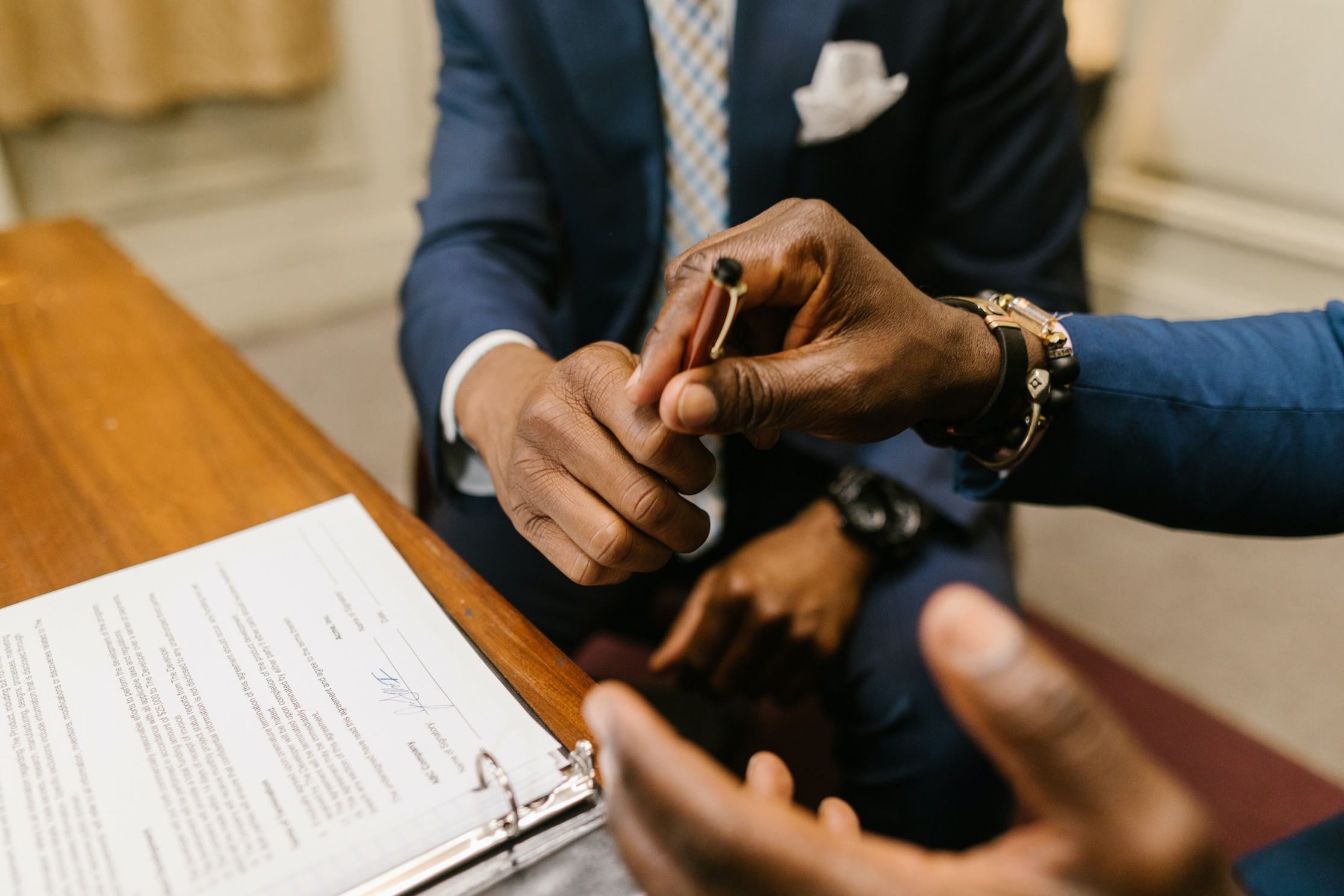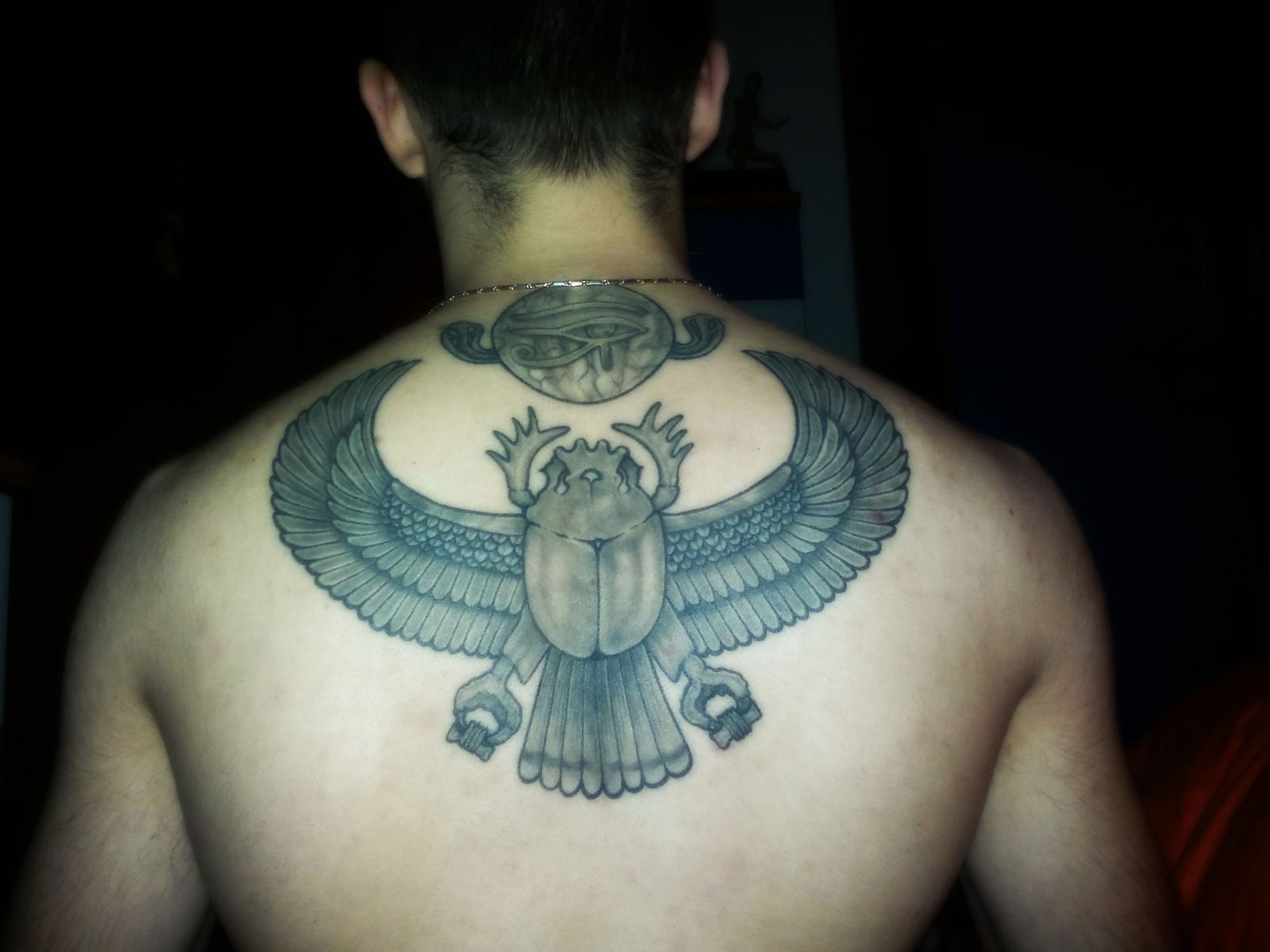Home>Arts and Culture>The Controversy Surrounding Non-Egyptians And Egyptian Themed Tattoos
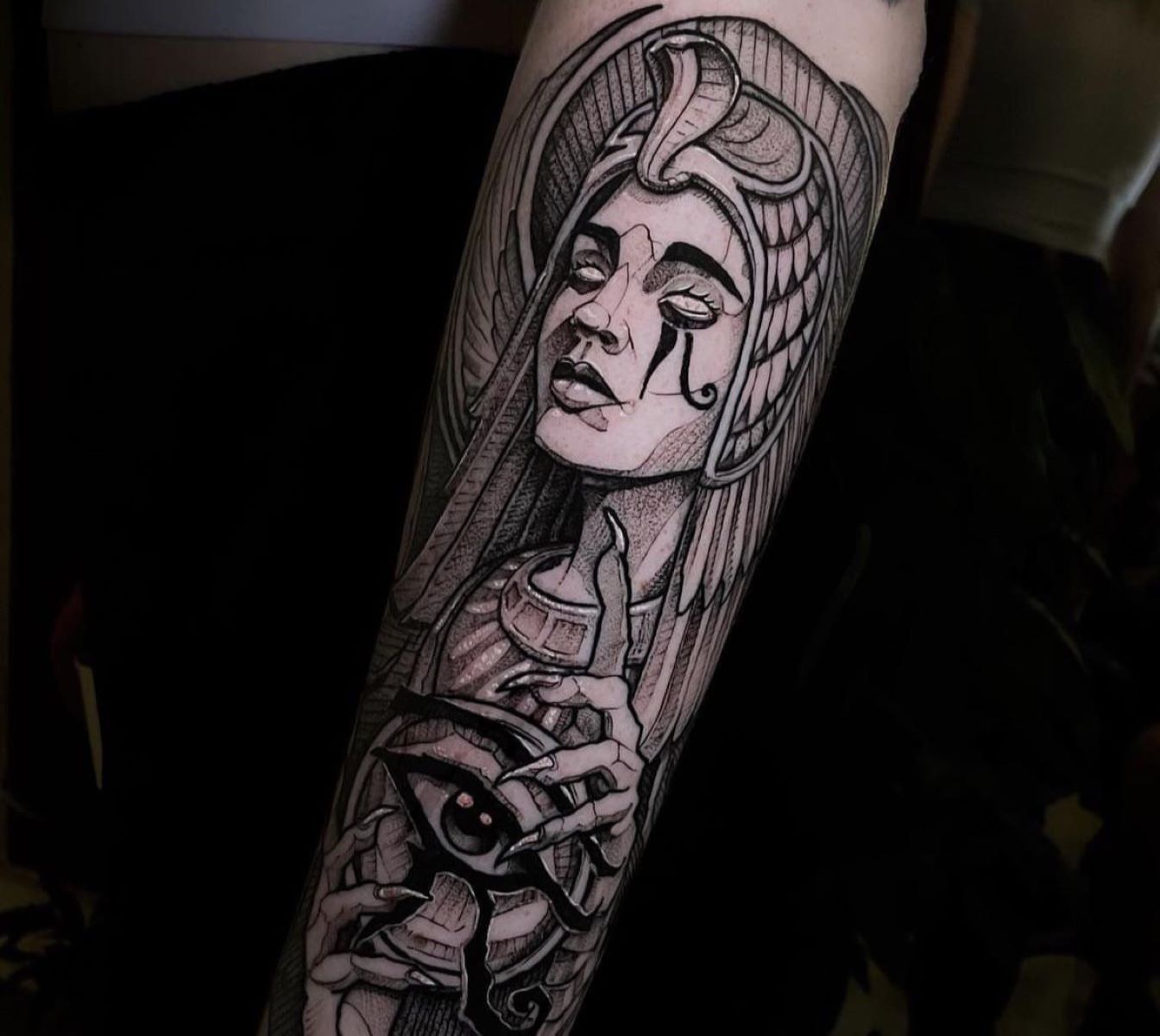

Arts and Culture
The Controversy Surrounding Non-Egyptians And Egyptian Themed Tattoos
Published: January 20, 2024
Explore the controversy of non-Egyptians getting Egyptian-themed tattoos and its impact on arts and culture. Delve into the cultural significance and implications of these tattoos.
(Many of the links in this article redirect to a specific reviewed product. Your purchase of these products through affiliate links helps to generate commission for Regretless.com, at no extra cost. Learn more)
Table of Contents
Introduction
Egyptian themed tattoos have long been a source of fascination and inspiration for people around the world. The allure of ancient Egyptian symbols, deities, and hieroglyphs has led many individuals to adorn their bodies with permanent ink, reflecting a deep appreciation for the rich history and culture of this ancient civilization. However, the practice of non-Egyptians getting Egyptian themed tattoos has sparked debates and controversies, raising important questions about cultural appropriation, respect, and the preservation of heritage.
The intricate and captivating imagery associated with ancient Egypt, including the iconic Eye of Horus, Ankh, and depictions of pharaohs and goddesses, has transcended geographical boundaries and captivated the imaginations of people from diverse backgrounds. For many, these tattoos serve as a means of expressing admiration for the artistry, mystique, and spiritual significance embedded within Egyptian iconography. Yet, the growing popularity of Egyptian themed tattoos among non-Egyptians has also given rise to concerns regarding cultural insensitivity and the potential exploitation of sacred symbols and traditions.
As we delve into the complex and multifaceted realm of Egyptian themed tattoos, it becomes essential to explore the historical and cultural significance of these ancient motifs, as well as the ethical considerations surrounding their appropriation. Furthermore, we will examine the personal connections individuals may have with Egyptian culture, the role of non-Egyptians in preserving and perpetuating this heritage, and the importance of approaching these tattoos with reverence and understanding.
The controversy surrounding non-Egyptians and Egyptian themed tattoos invites us to embark on a thought-provoking journey, delving into the intersections of art, culture, identity, and ethics. By navigating these discussions with sensitivity and insight, we can gain a deeper understanding of the complexities inherent in the global fascination with Egyptian symbolism and the implications of incorporating these motifs into contemporary body art.
Read more: The Controversial Truth About Rosary Tattoos
Historical and Cultural Significance of Egyptian Themed Tattoos
Egyptian themed tattoos hold profound historical and cultural significance, rooted in the enduring legacy of ancient Egypt. The symbols and motifs incorporated into these tattoos are imbued with centuries of mythology, spirituality, and artistic expression, making them a compelling canvas for those seeking to connect with the mystique of this ancient civilization.
The art of tattooing itself has a long history in Egypt, with evidence of its practice dating back to the time of the pharaohs. In ancient Egypt, tattoos were not only decorative but also held symbolic and ritualistic importance. They were believed to confer protection, strength, and spiritual guidance, serving as a tangible link between the individual and the divine. The intricate designs found in Egyptian themed tattoos often draw inspiration from hieroglyphs, sacred animals, deities, and iconic symbols such as the Ankh, the Eye of Horus, and the lotus flower, each carrying its own profound significance within Egyptian cosmology.
The enduring appeal of Egyptian themed tattoos lies in their ability to encapsulate the mysticism and grandeur of ancient Egypt, offering individuals a means of embodying the timeless allure of this enigmatic civilization. For many, these tattoos serve as a homage to the rich tapestry of Egyptian culture, reflecting a deep appreciation for its art, mythology, and spiritual traditions.
Moreover, Egyptian themed tattoos often serve as a visual representation of personal beliefs and values. The Eye of Horus, for instance, symbolizes protection, healing, and the all-seeing power of the divine. The Ankh, often interpreted as a symbol of life and immortality, resonates with individuals seeking to imbue their bodies with a profound sense of vitality and spiritual interconnectedness.
By adorning their skin with these evocative symbols, individuals not only pay homage to the enduring legacy of ancient Egypt but also carry forward its cultural and spiritual resonance into the contemporary world. Egyptian themed tattoos thus serve as a bridge between the past and the present, allowing individuals to carry a piece of this ancient civilization's wisdom and beauty with them throughout their lives.
In the next section, we will delve into the complexities surrounding the appropriation of Egyptian imagery and the ethical considerations that arise in the context of non-Egyptians embracing these symbols through body art.
Appropriation and Cultural Insensitivity
The widespread adoption of Egyptian themed tattoos by non-Egyptians has sparked debates surrounding cultural appropriation and the potential for insensitivity towards the cultural and spiritual significance of these symbols. Cultural appropriation occurs when elements of a marginalized or minority culture are adopted by members of a dominant culture without proper understanding, reverence, or acknowledgment of their origins. In the context of Egyptian themed tattoos, this raises crucial questions about the respectful engagement with ancient Egyptian heritage and the implications of non-Egyptians incorporating these symbols into their body art.
One of the central concerns regarding cultural appropriation lies in the potential detachment of these symbols from their original cultural context. When individuals from outside of Egyptian culture adorn themselves with hieroglyphs, deities, or other iconic motifs, there is a risk of divorcing these symbols from their profound historical, spiritual, and mythological roots. This detachment can lead to a superficial or distorted interpretation of the symbols, diluting their intrinsic significance and perpetuating a simplified, often stereotypical, understanding of ancient Egyptian culture.
Furthermore, the commercialization of Egyptian themed tattoos can exacerbate the issue of cultural insensitivity. When these symbols are commodified and mass-produced for the consumption of a global market, there is a risk of reducing them to mere aesthetic accessories, devoid of their deeper cultural and spiritual meanings. This can trivialize the profound significance these symbols hold within Egyptian heritage, leading to their appropriation for purely decorative purposes without due regard for their original context and symbolism.
The ethical considerations surrounding cultural appropriation and insensitivity in the context of Egyptian themed tattoos underscore the importance of approaching these symbols with mindfulness, respect, and a genuine desire to understand their cultural roots. It is essential for individuals, especially those outside of Egyptian culture, to engage in thoughtful reflection and education before incorporating these symbols into their body art. This involves acknowledging the historical and spiritual weight carried by these motifs, as well as recognizing the living legacy of Egyptian culture and its continued relevance to contemporary communities.
By critically examining the complexities of cultural appropriation and insensitivity, we can foster a more nuanced understanding of the ethical implications of embracing symbols from ancient Egyptian culture. This sets the stage for a deeper exploration of the personal connections individuals may have with Egyptian culture and the role of non-Egyptians in preserving and perpetuating this rich heritage.
Next, we will delve into the deeply personal and respectful dimensions of individuals' relationships with Egyptian themed tattoos, shedding light on the diverse motivations and sentiments that underpin the decision to adorn oneself with these evocative symbols.
Personal Connection and Respect for Egyptian Culture
The decision to embellish one's body with Egyptian themed tattoos often stems from a profound personal connection to the art, mythology, and spiritual heritage of ancient Egypt. For many individuals, these tattoos represent a deep-seated reverence for the cultural legacy of this enigmatic civilization, transcending geographical and temporal boundaries to forge a meaningful bond with the symbols and narratives of ancient Egypt.
At the heart of this personal connection lies a genuine respect for Egyptian culture, manifested through a sincere desire to honor and celebrate its enduring influence on the human experience. Individuals who choose to adorn themselves with Egyptian themed tattoos often do so with a profound sense of admiration for the artistry, symbolism, and wisdom encapsulated within these ancient motifs. Their decision reflects a conscious effort to engage with Egyptian culture in a manner that acknowledges its complexity, beauty, and historical significance.
Moreover, the process of acquiring an Egyptian themed tattoo often involves extensive research, introspection, and dialogue with knowledgeable sources to gain a deeper understanding of the symbols being incorporated. This commitment to learning and appreciation demonstrates a genuine respect for the cultural and spiritual underpinnings of the chosen imagery, emphasizing the importance of approaching these symbols with sensitivity and mindfulness.
Furthermore, individuals who seek Egyptian themed tattoos frequently express a profound emotional and spiritual resonance with the symbols they choose to inscribe on their bodies. Whether it be the enigmatic Eye of Horus, the regal visage of Nefertiti, or the timeless Ankh, these symbols often hold deeply personal meanings, serving as sources of strength, guidance, and spiritual connection for those who wear them.
In essence, the decision to adorn oneself with Egyptian themed tattoos is underpinned by a deep-seated respect for the cultural heritage of ancient Egypt, and a desire to forge a meaningful and personal connection with its timeless symbols. This respect is reflected in the meticulous research, introspection, and emotional significance that individuals attribute to their chosen tattoos, underscoring the profound personal and spiritual dimensions of their relationship with Egyptian culture.
As we navigate the intricate terrain of Egyptian themed tattoos, it becomes evident that the personal connections individuals forge with these symbols are imbued with a profound sense of respect, reverence, and admiration for the enduring legacy of ancient Egypt. This personal dimension adds depth and nuance to the discourse surrounding the appropriation and appreciation of Egyptian imagery, highlighting the diverse motivations and sentiments that underpin individuals' decisions to embrace this ancient heritage through body art.
Next, we will delve into the role of non-Egyptians in preserving and perpetuating Egyptian art and culture, shedding light on the ways in which individuals from diverse backgrounds contribute to the preservation and celebration of this rich and storied heritage.
The Role of Non-Egyptians in Preserving and Perpetuating Egyptian Art and Culture
Non-Egyptians play a significant role in the preservation and perpetuation of Egyptian art and culture, contributing to the global appreciation and understanding of this rich heritage. Their engagement with Egyptian themed tattoos serves as a testament to the enduring impact of ancient Egypt on a global scale, fostering cross-cultural dialogue and the dissemination of knowledge about this enigmatic civilization.
One pivotal aspect of the role of non-Egyptians in preserving Egyptian art and culture lies in their active participation in educating and raising awareness about the historical and cultural significance of Egyptian symbols and motifs. Through their tattoos, non-Egyptians become cultural ambassadors, sparking conversations and inquiries about the profound meanings and stories behind the imagery they have chosen to adorn themselves with. This, in turn, creates opportunities for sharing insights into the complexities of ancient Egyptian art, mythology, and spirituality, thus contributing to a broader understanding of this ancient civilization.
Furthermore, non-Egyptians who embrace Egyptian themed tattoos often become advocates for the respectful and informed representation of these symbols. By engaging in discussions about the ethical considerations surrounding cultural appropriation and sensitivity, they promote a more thoughtful and nuanced approach to incorporating Egyptian imagery into contemporary body art. This advocacy fosters a culture of respect and understanding, encouraging individuals from diverse backgrounds to engage with Egyptian symbols in a manner that honors their cultural and spiritual significance.
Moreover, the global visibility of Egyptian themed tattoos on non-Egyptians serves to highlight the enduring appeal and relevance of ancient Egyptian art and culture in the modern world. This visibility contributes to the continued celebration and exploration of Egyptian symbolism, fostering a sense of interconnectedness and shared appreciation across cultural boundaries. Non-Egyptians who choose to adorn themselves with Egyptian themed tattoos become part of a broader tapestry of individuals who are drawn to the mystique and beauty of this ancient heritage, further enriching the global tapestry of cultural diversity and interconnectedness.
In essence, non-Egyptians play a vital role in preserving and perpetuating Egyptian art and culture through their engagement with Egyptian themed tattoos. Their active participation in education, advocacy, and the celebration of Egyptian symbolism contributes to a deeper and more inclusive appreciation of this ancient civilization, transcending geographical and cultural barriers to foster a global tapestry of interconnectedness and appreciation for the enduring legacy of ancient Egypt.
Conclusion
In the intricate tapestry of art, culture, and personal expression, the controversy surrounding non-Egyptians and Egyptian themed tattoos invites us to navigate a complex terrain of historical significance, ethical considerations, personal connections, and the global preservation of ancient heritage. The allure of ancient Egyptian symbols and motifs has captivated individuals from diverse backgrounds, sparking profound personal connections and debates about cultural appropriation and respect.
The historical and cultural significance of Egyptian themed tattoos is deeply rooted in the enduring legacy of ancient Egypt. These symbols, imbued with centuries of mythology, spirituality, and artistic expression, serve as a bridge between the past and the present, allowing individuals to carry a piece of this ancient civilization's wisdom and beauty with them throughout their lives. The art of tattooing in ancient Egypt itself reflects the profound spiritual and ritualistic importance of these symbols, emphasizing their enduring significance within Egyptian culture.
However, the widespread adoption of Egyptian themed tattoos by non-Egyptians has raised crucial questions about cultural appropriation and insensitivity. The detachment of these symbols from their original cultural context and their potential commodification underscore the ethical considerations that individuals, especially those outside of Egyptian culture, must navigate with mindfulness, respect, and a genuine desire to understand their cultural roots.
Amidst these debates, the deeply personal connections individuals forge with Egyptian themed tattoos reveal a profound respect for the cultural heritage of ancient Egypt. Their meticulous research, introspection, and emotional significance attributed to these symbols underscore the nuanced and respectful engagement with Egyptian culture, emphasizing the diverse motivations and sentiments that underpin individuals' decisions to embrace this ancient heritage through body art.
Furthermore, non-Egyptians play a significant role in preserving and perpetuating Egyptian art and culture through their engagement with Egyptian themed tattoos. They become cultural ambassadors, advocates for respectful representation, and contributors to the global celebration and exploration of Egyptian symbolism, fostering cross-cultural dialogue and appreciation for the enduring legacy of ancient Egypt on a global scale.
In conclusion, the controversy surrounding non-Egyptians and Egyptian themed tattoos invites us to navigate a thought-provoking journey, delving into the intersections of art, culture, identity, and ethics. By critically examining the historical, personal, and global dimensions of this discourse, we gain a deeper understanding of the diverse motivations, ethical implications, and the enduring significance of ancient Egyptian culture in the modern world. This exploration encourages us to approach the appreciation and representation of Egyptian symbolism with reverence, understanding, and a commitment to preserving and celebrating the rich heritage of this enigmatic civilization.



